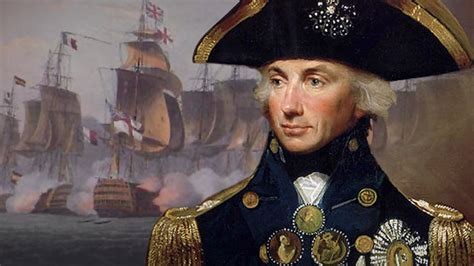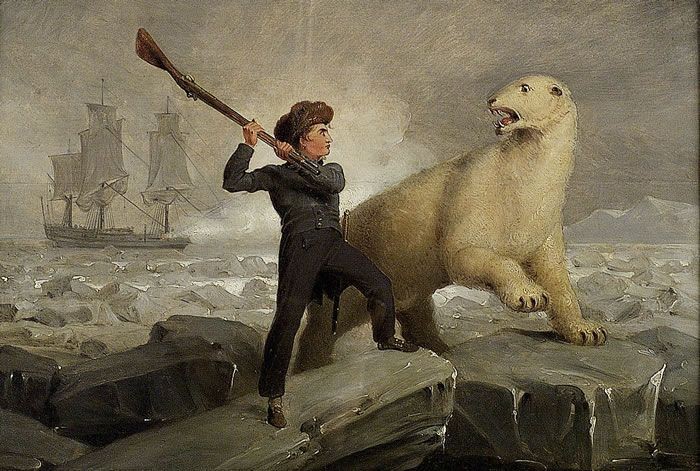
The year 2008 marked the 250th anniversary of the birth of Britain’s greatest naval hero, Admiral Lord Nelson, at Burnham Thorpe, Norfolk, on 29th September 1758. I had long been an admirer of His Lordship, as well as a lover of poetry, and had noted, during my extensive reading of many biographies of the great man, the many poems written in his honour both during his lifetime and in the years since his death at Trafalgar on 21st October 1805.
As a commemorative tribute, I made a selection of these poems which I had printed and circulated privately to friends, and admirers of Nelson. His name had fallen into abeyance in recent times and I felt it important to build on the revived interest in him generated by the bicentenary of Trafalgar in 2005 and to preserve the memory of his heroic achievements.
It is easy to forget, with the passage of time, the horrors unleashed upon mainland Europe by the voracious appetite for conquest of Napoleon Bonaparte, and the appalling devastation and misery inflicted on country after country by the predations of his rapacious and marauding armies. In 1805, his Grand Army of 250,000 stood poised and ready to invade Britain also. Terror gripped every corner of the land. The only hope of repelling this existential threat depended on the Royal Navy, ‘the bulwark of the nation’, overcoming the combined French and Spanish fleet.
This task was entrusted to Admiral Nelson who was admired for his earlier stupendous victory at the Nile and was loved and respected by the seamen under his command, whose welfare and well-being, they knew, were his constant concern and whose affable nature and generous heart cheered and inspired them. It was this supreme and inspirational leadership that utterly vanquished the enemy at Trafalgar and saved the nation from the unimaginable horrors that had been Europe’s fate; but it cost him his life. Gratitude for his victory and grief at his loss reverberated throughout the land and found expression in poetry, songs and eulogies in their hundreds.
I append below the preface, heavily edited for brevity, that I wrote to the collection in 2008. My purpose then was simply to show that Nelson was embedded in the national memory and to keep this memory alive. Since then, events have taken a more troubling turn. Not content with allowing our national heroes to sink into oblivion, politically motivated detractors have made organised and malevolent efforts to degrade and devalue them; to blacken their reputation and distort their achievements.
Nelson himself came under attack, with claims that he was an ardent supporter of slavery and a white supremacist. Mercifully, the Nelson scholar, Martyn Downer, was able to prove conclusively that the letter supposedly confirming his guilt had been faked. Moreover, he produced evidence that Nelson had freed more than 30 galley slaves in 1799, years before the slave trade was abolished. Nelson was exonerated but it was a close run thing; and a warning too. Sinister forces are on the march, determined to pervert our history, denigrate our heroes and obliterate the memory of all our nation’s achievements. We must be vigilant against such calumnies, and protect and defend our history and our heroes for those who come after us. Here is my small contribution to that end.
ADMIRAL LORD NELSON: A BIRTHDAY TRIBUTE
On Saturday 16th November 1805, an obscure Somerset parson noted in his diary, ‘I have been busy writing my Song on the Victory of Lord Nelson.’ He was, it seems, a curmudgeonly old party, this Reverend William Holland, much given to grumbling about the feckless dullards of his parish, and judging by the flat, unadorned entries in his diaries, no stylist. Nevertheless, he was moved by the news of Trafalgar to write a poem, though no trace of it now exists. I had come across numerous references to poems lauding Nelson and began a more focused search for others with the idea of making a collection.
The result was astounding: hundreds of poems were unearthed, written by churchmen like Holland in lonely parsonages; by editors of provincial newspapers in their dusty offices; by silk-clad ladies at elegant writing desks; by broadsheet writers of doggerel verse; by officers and seamen on the high seas and far from home. An additional verse to the National Anthem praising Nelson was found – written by whose unknown hand? - in the Kitchen Book of Lord Monson. The archivist at Chatsworth House provided two poems lauding Nelson, one written by the Duke of Devonshire himself, the other by his Duchess, the fascinating Georgiana. Many other poems were anonymous, and few, in truth, had great literary merit; but the sincerity of heartfelt loss shines from every line.
It became clear that Nelson’s death was a calamitous national bereavement that weighted every heart, expressed not only in words but in the overwhelming silence of the crowds who gathered in their thousands in the streets of London to honour him at his funeral that cold January day in 1806, the only sound in the stillness the quiet ‘swish’ through the air as hats were raised respectfully to the passing cortege.
After his death, Nelson did not soon fade from the national memory. In the period of imperial and naval dominance that followed, it is unsurprising that he was appropriated by church and state as a template of heroism and Christian virtue, extolled at great length by authors like Gerald Massey and Henry Newbolt, little-read now, but then hugely popular; but we catch too the voices of ordinary folk in the songs, ballads and seamen’s shanties that continued to be composed and sung.
In the two great conflicts of the 20th century poets turned again to the memory of Nelson. John Macrae’s poem, ‘The Captain’ and Clemence Dane’s poem, ‘Trafalgar Day 1940’ remind us that when invasion loomed once more it was to the virtues exemplified by Nelson and his brothers-in- arms, their courage and stoicism, their perseverance and sense of duty, that were invoked once more to stiffen the resolve of a nation under threat. And most recently, the 200th anniversary of Trafalgar inspired the poet Laureate, Andrew Motion, to write of his exhilaration on first learning of Nelson and records his childhood response to the grandeur of the heroic.

In the two hundred and more years since Nelson’s death, the image of the pasteboard hero, the artificial construct of unblemished virtue, has given way to a more balanced and truer picture: a hero, no doubt, but also a flawed and fallible human being. Yet we admire him no less, perhaps because every fault is counterbalanced by many and greater virtues. Irascible, stubborn, reckless he may on occasions have been; and he certainly ‘went to the deuce for a woman’; but generous, affectionate, dutiful, courageous and great- hearted he always was. When great men stoop to less than greatness they can often appear monstrous. Nelson becomes simply more human.
Even in an irreverent age like our own he remains an icon, whatever the chattering classes might say to the contrary. The decline in the teaching of history as narrative has almost obliterated Nelson from schoolbooks, and to many youngsters his is not a name that resonates. Nevertheless, the recently published Book of British Heroes has Nelson on the cover; in a popular vote he made it to the list of ten top Britons, alongside Shakespeare, Churchill and Darwin. No moment of national challenge or major sporting event approaches without the appearance on banners and in newspapers of the most famous naval signal of all time: ‘England expects…..’ In 2005, hundreds of thousands lined the coast to watch the spectacle of massed ships from 35 nations honouring his victory at Trafalgar in 1805.
Inevitably, biographers will assess Nelsons character and achievements, not only in the light of new knowledge but also according to the prevailing cultural winds of the day. Academic historians may feel some irritation with the popular resistance to accept revisionist assessments more critical of their hero. But it needs no apology. Whatever his faults and failings, this certainty remains and speaks to us still in all its shining simplicity. Horatio Nelson’s life was the epitome of courage, leadership, duty and sacrifice, exemplified in the entry he made in his journal as he prepared for his final battle:
‘May the great God whom I worship grant to my country, and for the benefit of Europe in general, a great and glorious victory; and may no misconduct in anyone tarnish it; and may humanity after victory be the predominant feature of the British fleet.
For myself individually, I commit my life to Him who made me, and may His blessing alight on my endeavours for serving my country faithfully. To Him I resign myself, and the just cause which is entrusted to me to defend. Amen. Amen. Amen.’
The resurgence of interest in him in 2005 was a reminder that Nelson’s blood still courses through the nation’s veins; and if the pulse had seemed weaker in a post-imperial age, we simply needed to allow ourselves to put a finger on it from time to time to feel it beat as vigorously as ever.
In this year, the 250th anniversary of his birth, we honour Nelson again, not only with admiration but also – and this would please him – with affection. For all his dash and daring, for all his implacable ferocity in the face of his country’s enemies, his was a nature that craved, and earned love. It seems fitting that many of these poems came from the pens of the ordinary and unremarkable as well as the famous and gifted, confirming that this was a man who has found his place in the nation’s heart; and rightly so. For not only in the splendour of his heroism but also in his charm of character and greatness of spirit surely none can match him.
In truth, ‘there is but one Nelson.’
Click on continue below for the story of Trafalgar